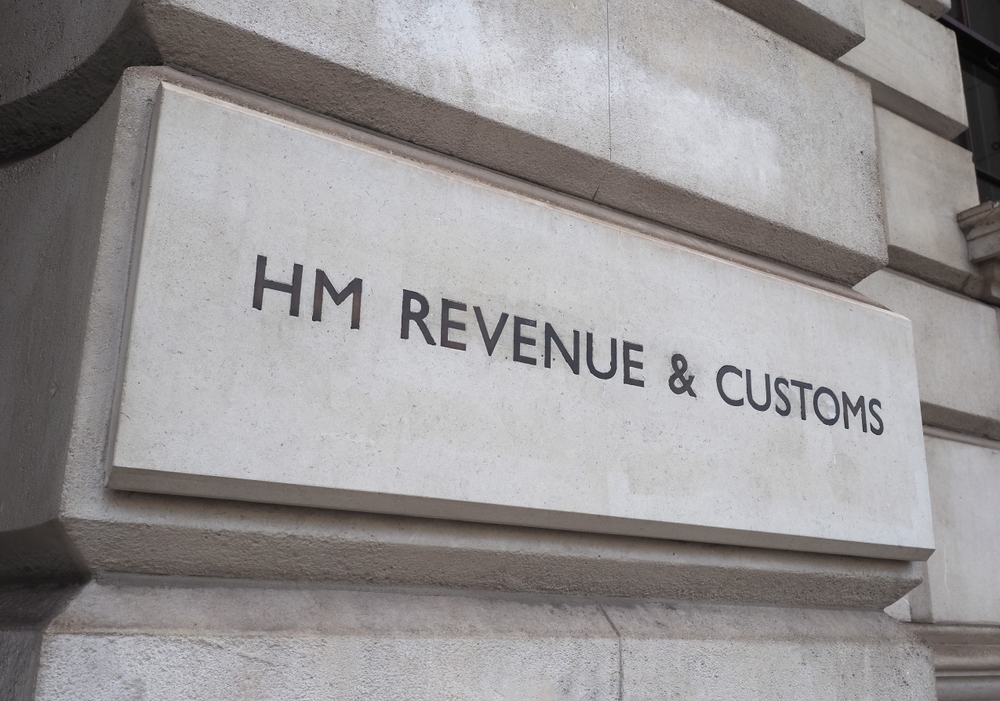In this article, first published by Taxation on 19 May, Matthew Greene (Partner) and Guy Bud (Associate Barrister) review HMRC’s new consultation which “seeks views on options to improve the financial penalties that apply when inaccuracies are found in returns and documents submitted to HMRC and where taxpayers do not meet their obligations to notify HMRC of circumstances that affect their tax liability.”
Reform of behavioural penalties, the subject of HMRC’s new consultation, may not be at the top of many advisors’ fiscal wish lists. Almost 20 years ago, the introduction of the “new” penalty regime represented a significant milestone in the modernisation of the UK’s tax administration system. It was developed as part of the Modernising Powers, Deterrents and Safeguards review, which sought to create a more consistent and efficient approach to ensuring compliance. One of the primary objectives was to unify the various penalty frameworks that applied across different taxes.
The regime categorised penalties into four key areas, addressing common taxpayer errors: inaccuracies in documents (Schedule 24 FA 2007), failure to notify (Schedule 41 FA 2008), late filing (Schedule 55 FA 2009) and late payment (Schedule 56 FA 2009). Penalties in the first two categories are determined based on the taxpayer’s conduct and are therefore “behavioural penalties”. These penalties are particularly important in shaping overall compliance with tax obligations.
While these reforms have generally been successful, the initial goal of full harmonisation has not been fully achieved. For example, inheritance tax and certain aspects of corporation tax still operate under separate penalty structures. HMRC seems nonetheless to be doubtful about whether the current system remains effective at pushing taxpayers into compliance. Over recent years, there has been more than a hint of a much more ambitious plan to rework the entire system.
Tax administration framework review
The government outlined a 10-year strategy for tax administration in 2020, aiming to create “a tax system fit for the challenges and opportunities of the 21st century”. This initiative included a comprehensive review of administrative and investigative powers, as well as penalties designed to address taxpayer non-compliance.
In February 2024, HMRC launched a call for evidence to examine the full scope of enquiry and assessment powers, penalties and safeguards. The review was broad in its reach, incorporating suggestions on harmonisation and other aspects. The overall focus seemed to be largely on increasing the punitiveness of the penalty system. Public feedback was predictably in favour of “fewer, simpler penalties” and strong support for greater harmonisation. Many respondents shared HMRC’s enthusiasm for shifting the focus towards persistent non-compliance rather than penalising one-off errors in the same way.
In considering the responses, HMRC emphasised its desire to focus on three areas, which it summarised as follows:
- Options for new approaches to tackle high volumes of low-value non-compliance, including a model to offer taxpayers an opportunity to quickly resolve potential errors identified by HMRC and self-correct their returns
- Behavioural penalties, including how the concepts of penalty alignment, simplification and escalation can be applied to existing ‘inaccuracy’ and ‘failure to notify’ penalties
- Ways to improve access to alternative dispute resolution and statutory review to help resolve disputes before they reach the tribunal.
The second of these points forms the genesis for the consultation announced in the Spring Statement on 26 March 2025 towards the issue of penalty reform. It is important not to see this in isolation, however. New developments on the other two limbs were published as part of Tax Administration and Maintenance Day on 28 April 2025.
The penalties consultation consists of seven separate questions that can be broadly divided into two parts. The first section introduces a series of proposals for reform of the existing framework of penalties. In contrast, the second explores more ambitious “alternative approaches” that warrant particularly close consideration as a hint towards HMRC’s preferred direction of travel.
Reforms to the existing system
A range of proposals is currently under discussion. Although the consultation tries to bundle these together under the shared concepts of reworking legislative simplicity and improving incentives, the specific items range wildly in their scope and degree of ambition.
The proposals include:
- Penalty reductions for disclosure: This is focused on simplifying the process and providing incentives for taxpayers to make more and better disclosures. Maximum penalty reductions for late disclosures (giving rise to a minimum 10% penalty) would be revised to encourage such disclosures, even if they take place more than three years after the inaccuracy.
- Greater penalisation for serious and repeated failures: The consultation suggests “higher inaccuracy and failure to notify penalties for those who intentionally conceal or under report to HMRC”. Although a little vague, this seems in practice to focus on reform to the concept of “deliberate” failures and the current focus on concealment. Instead, there would be a higher minimum penalty for all deliberate failures, which would rise still further for repeat offenders.
- Offshore penalty simplification: The current system for calculating offshore-related penalties pre-dates the Common Reporting Standard (CRS) and is both complicated and capable of producing unfair results. The consultation makes no specific proposals for how simplification could be achieved.
- Simplifying the penalty suspension process: HMRC’s focus on limiting the hardship for one-off errors is also reflected in the discussion around reforming the approach to penalty suspension. The consultation suggests automatic suspension without specific conditions or introducing a “caution” for first offenders.
These issues are worthy of genuine consideration. All the same, it seems fair to say that changes in any of these areas would be unlikely to fundamentally change the working of the penalty system as we know it.
Reform of the system of penalty suspension, in particular, will be welcomed by many. As well as requiring detailed correspondence about conditions, it is no secret that the approach has sometimes varied between individual officers at HMRC. In spite of this, it would be disappointing to see this transformed into a blanket forgiveness for all one-off errors without any residual discretion left to handle other, perhaps more deserving, cases involving multiple errors.
Inevitably, though, advisors will be particularly focused on the more punitive approach towards deliberate failures. Although this may seem hard to argue with in principle, careful attention must be given to its implementation. In recent years, anecdotal evidence suggests HMRC has increasingly alleged deliberate behaviour against taxpayers, sometimes with minimal supporting evidence.
“Alternative approaches”
The consultation introduces the possibility of significant reforms to aspects of the penalty system, with some radical proposals.
One key suggestion is “a different model for behavioural penalties”, which would combine inaccuracy and failure-to-notify penalties into a single framework, explicitly aiming to “further strip back behavioural considerations”. This would eliminate the existing distinctions between “careless” and “deliberate” errors. While details remain unclear, there is concern that even non-careless mistakes might be penalised for the first time if any new provisions are not tightly drafted.
The proposal outlines two new penalties:
- Misdeclaration penalty: This would apply to most or all instances of non-compliance, regardless of a taxpayer’s conduct. This suggests that behaviour would be removed from consideration, although protections might exist for those with a “reasonable excuse”, a concept overlapping with the existing notion of reasonable care for carelessness. Taxpayers could seek a reduction in penalties through full disclosure of their non-compliance.
- Civil evasion penalty: Designed for “more serious cases of deliberate non-compliance”, this would target a limited number of cases. Higher penalty rates could apply to repeated failures. Aside from this, there is little detail.
Both would be tax-geared, but the misdeclaration penalty would be set at “a low percentage” of the tax at risk. HMRC also insists that “a mistake may not result in a penalty automatically being applied if it is the first time it has happened and the taxpayer has made the mistake innocently”. Similar dispensations would be available for taxpayers’ own amendments or corrections of their tax returns.
The civil evasion penalty would be reserved for the most serious cases of non-compliance, but how this delineation is to be achieved is not clear. There have been many instances where reassuring noises about the scope of a legislative change have been made at the consultation stage, only for the final wording of the rules (and the way HMRC applies them) to have a much broader scope than was envisaged.
A second set of proposals focuses on “non-financial” penalties, though details are currently sparse. The consultation suggests HMRC may explore tougher sanctions for deliberate and repeated non-compliance, drawing from non-tax precedents elsewhere in the public sector. The Department for Work and Pensions has proposed disqualifying benefits fraudsters from driving, while the Child Maintenance Service already has the authority to request court orders cancelling passports for non-compliant individuals. The consultation is reassuring that “non-financial sanctions would be actions of last resort and intended to have a deterrence effect”.
This kind of proposal would mark a significant escalation in HMRC powers, raising concerns about the severity of the proposed non-financial sanctions. Assessing their potential impact remains challenging without clearer guidance on how, when and to whom they would apply.
Missing safeguards
Several overarching themes emerge from the consultation. HMRC is clearly focused on ensuring that penalties serve as an effective deterrent while encouraging taxpayers to exercise reasonable care in managing their tax affairs. Equally, there is a strong emphasis on targeting repeated non-compliance rather than penalising isolated mistakes. Simplifying the legislative framework also appears to be a key priority.
While these are all worthy aims, they must not overshadow the equally critical issue of taxpayer safeguards. Given that penalties are inherently punitive, they raise important concerns regarding taxpayer rights. It is essential that robust legal protections are in place to prevent unreasonable, disproportionate, or unjust outcomes, which are issues that taxpayers and their advisers frequently encounter in all sorts of cases. Safeguarding these protections is fundamental to maintaining the integrity of the tax system, and these should not be sacrificed in the name of simplicity
We should also not lose sight of the fact that there are many factors that contribute to encouraging compliance among taxpayers. Penalties are one aspect. An increasingly punitive rate of interest on late paid tax is another, while some taxpayers will be ever mindful of their wider relationship and risk rating with HMRC. Reform for the sake of reform is the last thing anyone needs. It is possible to simplify the current penalties regime without compromising important protections. It is to be hoped that HMRC’s assurances (albeit vague) in this regard will be fulfilled.
You can find further information regarding our expertise, experience and team on our Tax Litigation and Resolution page.
If you require assistance from our team, please contact us.
Subscribe – In order to receive our news straight to your inbox, subscribe here. Our newsletters are sent no more than once a month.







